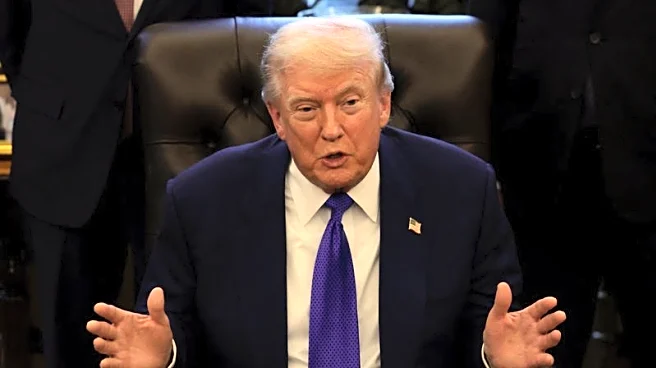What's Happening?
China's national security agency has accused the United States National Security Agency (NSA) of conducting cyberattacks against the National Time Service Center in Xi'an, Shaanxi province. The center is responsible for maintaining Beijing Time, which
is crucial for various sectors including communications, finance, and defense. The attacks reportedly aimed to disrupt the secure operation of Beijing Time, potentially causing widespread disruptions in network communications, financial systems, and even space launches. The NSA allegedly exploited vulnerabilities in foreign cellphone brands and used stolen credentials to infiltrate the center's systems. Chinese authorities have managed to resolve these infiltrations.
Why It's Important?
The allegations highlight ongoing tensions in cyberspace between major global powers, with significant implications for international cybersecurity norms. If true, these actions by the NSA could undermine trust and cooperation in global cybersecurity efforts. The potential disruptions to critical infrastructure underscore the vulnerability of national systems to cyber threats, raising concerns about the security of global timekeeping and its impact on international operations. The situation also reflects broader geopolitical tensions, as cyber capabilities become a key aspect of national security strategies.
What's Next?
The Chinese government may seek to strengthen its cybersecurity measures and international alliances to counter perceived threats. The U.S. may face diplomatic challenges as it navigates accusations of cyber aggression. Both nations could engage in further cyber defense and offense strategies, potentially escalating tensions. International bodies might call for renewed discussions on cyber norms and regulations to prevent such incidents.
Beyond the Headlines
The incident raises ethical questions about state-sponsored cyber activities and the balance between national security and international stability. It also highlights the need for robust international frameworks to address cyber conflicts and protect critical infrastructure globally.















